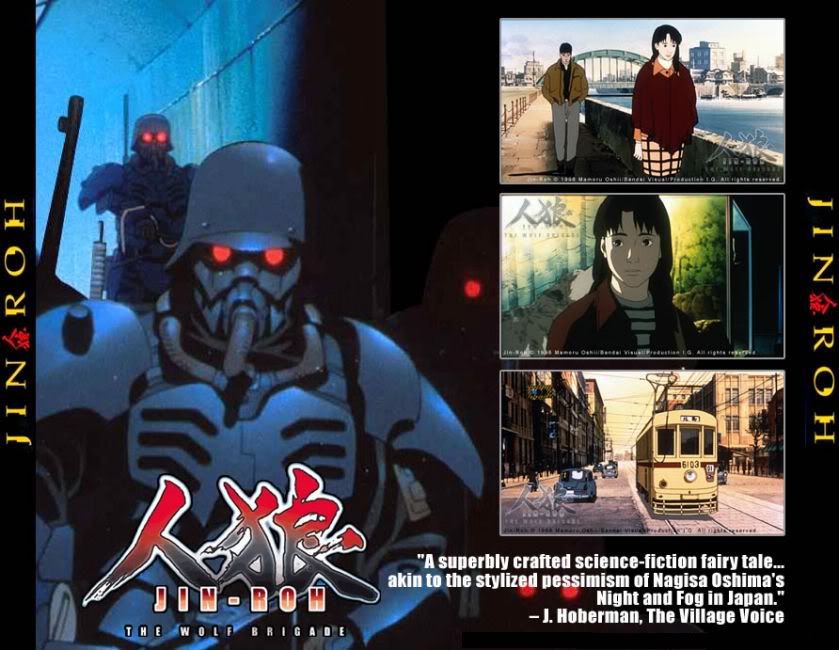
Jin-Roh, The Wolf Brigade
Thursday February 25th 8 pm Eastern Time
Series Background:
Jin-Roh: The Wolf Brigade or simply Jin-Roh is a 1999 animated feature film directed by Hiroyuki Okiura. The film is the third adaptation of Mamoru Oshii’s Kerberos saga manga, Ken-Roh Densetsu, after The Red Spectacles released in 1987 and StrayDog: Kerberos Panzer Cops released in 1991 in Japanese theaters.
Political Background:
Jin-Roh features many references to the political situation in Japan during the 1960s and early 1970s. During this time there were massive student protests from the left-wing centered around (but not exclusive to) the U.S.-Japan Security Treaty (the ANPO Hantai movement). Mamoru Oshii along with Hayao Miyazaki and Isao Takahata were part of this political movement.
The references in Jin-Roh to Germany taking over Japan parallel the political fears of the time, where many left-wing political factions thought that the Fascists were returning to power[citation needed]. These fears were exacerbated by the assassination of the head of the Japan Socialist Party, Inejiro Asanuma, while addressing the Diet on live television. Fears were further exacerbated by the current head of the Japanese Liberal Democratic Party (LDP) Nobusuke Kishi who was a convicted war criminal. This general sense of turbulence is featured throughout the film.
The Capitol Police are an analog to the special police forces that were set up in response to Article 9 of the Constitution of Japan, which forbade any military force, and political pressure from the United States to be prepared to fight the Communists. By the 1960s Japan had set up a virtual military under the title of a police force to circumvent this law. This form of military is exaggerated through the Capitol Police in Jin-Roh. (See, however, Bereitschaftpolizei for German police very much like the Capitol Police.) The protesters are all in reference to the anti-ANPO student groups of the 1960s, who not only demanded a repeal of the security treaty but also fought for improved labor conditions and changes in economic and social policy. Eventually these groups fell apart due to infighting and a system of compromises between the government bureaucracy, labor, keiretsu, and the LDP).
Jin-Roh looks at this political situation as an allegory to the current state of Japan which was ruled by the LDP continuously from 1955 to 2009 with very little political opposition. This lack of opposition is shown by Fuse’s inability to break from the “pack” in which he belongs, thus criticizing Japan as an overly conformist society unwilling to accept change even when times warrant it.
Plot Synopsis:
After witnessing the suicide bombing of a terrorist girl, Constable Kazuki Fuse becomes haunted by her image, and is forced to undergo retraining for his position in the Capital Police’s Special Unit. However, unknown to him, he becomes a key player in a dispute between Capital and Local Police forces, as he finds himself increasingly involved with the sister of the very girl he saw die.
We look forward to you joining us for this Anime SF Feature, konban wa! 

 (in a Cartman voice)
(in a Cartman voice)